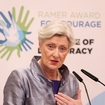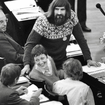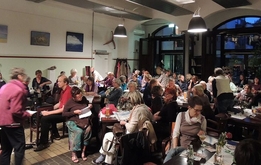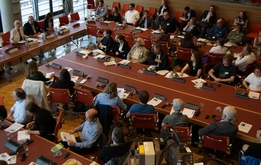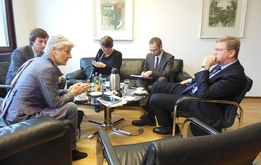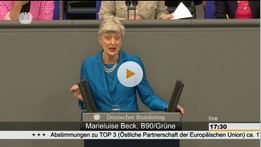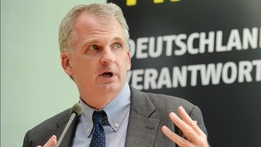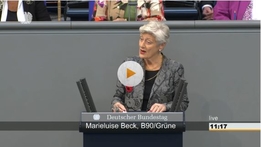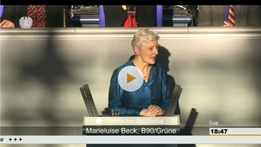Am 26. Juni 2014 diskutierte die Parlamentarische Versammlung des Europarats die politischen und humanitären Folgen der Ukraine-Krise. Im Mittelpunkt der Debatte stand das anhaltend aggressive Vorgehen Russlands, der Schutz des Völkerrechts und die nach wie vor instabile Lage im Osten der Ukraine.
Sehen Sie hier die Rede von Marieluise Beck:
Lesen Sie hier den Redetext nach:
Mr Zingeris reminded us of yesterday’s debate and the need to be aware that there are radical tendencies in Europe again. When we talk about the people who suffer in Ukraine, we are therefore also talking about Europe. That means that we are talking about us, and about the European peace order, which is definitely at stake.
Peace in Europe is at risk not only because of Russian aggression and the annexation of Crimea but also from the new strength of right-wing nationalist parties that have now entered the European Parliament in large numbers. It must be a warning to us when right-wing politicians such as Marine Le Pen are welcome guests of the Duma’s Speaker Sergey Naryshkin in Moscow, and it must worry us that members of nationalist and extreme right-wing parties were deployed as observers of the so-called referendum in Crimea, to which the Council of Europe and the OSCE refused to go.
We must be aware that Europe is under threat from far-right and nationalist movements that are joining forces in the West and the East. They all have the same idea – they want to destroy the multicultural, multi-ethnic Europe. All of us democrats must stand together against that threat, because, as has been said, it did so much harm in the 20th century. The nationalist propaganda in Russia is alarming, and it is greatly influencing the minds of people there. Many people in Russia really believe that fascism rules in Ukraine. The campaign is bringing the Russian people into a dangerous anti-Western mood, whereas we hope to build a common and democratic home for all European people, including in Russia.
We are witnesses of a so-called hybrid war in the east of Ukraine, after the annexation of Crimea. Which city will be next – Odessa? Kharkiv? Russia claims not to be involved, but many pictures show the opposite. The problem in Ukraine is that the Kremlin is keeping the visibility of its intervention just below the threshold at which sanctions would have to be imposed. We do not impose sanctions, and the Kremlin just continues.
We should be aware that a forced shift of borders would be the end of a peaceful Europe, so let us not accept the rule of the strongest. We have to stand by international and European law – only that will keep the peace and end the violence that we are seeing now.
Im Anschluss an die Dringlichkeitsdebatte hatten die Mitglieder der Parlamentarischen Versammlung des Europarats die Möglichkeit dem ukrainischen Präsidenten Petro Poroschenko Fragen zu aktuellen Lage in der Ukraine und den Zielen seiner Präsidentschaft stellen.
Sehen Sie hier die Frage von Marieluise Beck:
Die Antworten Poroschenkos sind auf der Internetseite des Europarats zu finden: http://assembly.coe.int/Main.asp?link=/Documents/Records/2014/E/14062610...


